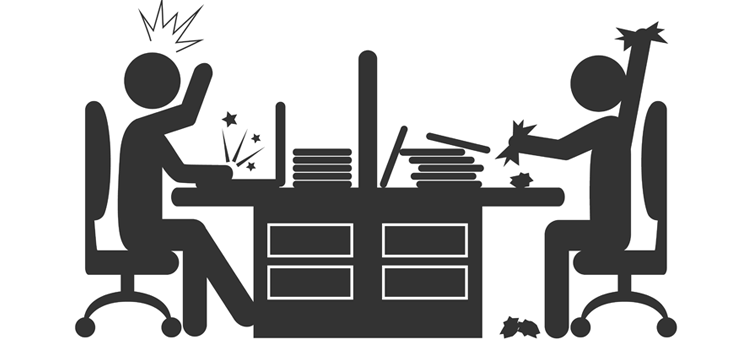Christine Porath, an associate professor at Georgetown University’s McDonough School of Business, has surveyed people across 17 industries to find out why incivil behavior happens within organizations. The major finding? More than 40 per cent claim they don’t have time to be nice.
In the Sunday Times, Porath pours over recent studies that indicate just how damaging a mean boss can be. On the health side, there’s repurcussions for the immune system as well as elevated hormones that influence appetite and weight. On the organizational side, incivility “hijacks” focus. In one case, Porath’s study participants were belitted before being asked to complete a word puzzle. They performed 33 per cent worse and came up with 39 per cent fewer creative ideas during a brainstorming task. Porath’s second study tackled another dynamic at the heart of mean boss ettiquette: rudeness.
In our second study, a stranger—a “busy professor” encountered en route to the experiment—was rude to participants by admonishing them for bothering her. Their performance was 61 percent worse on word puzzles, and they produced 58 percent fewer ideas in the brick task than those who had not been treated rudely. We found the same pattern for those who merely witnessed incivility: They performed 22 percent worse on word puzzles and produced 28 percent fewer ideas in the brainstorming task.
Porath argues that being nice doesn’t have to take more time—there are small adjustments that everyone can make. This includes listening, smiling, sharing, saying thank you, and turning off your phone or computer during meetings.
You can read Porath’s full story, “No Time to Be Nice at Work,” and also take the quiz to find out how toxic your organization is and what you can do about it.
When it comes to bosses that rule with an iron fist, Porath says they aren’t successful because of it—they’re successful despite it:
Studies by Morgan W. McCall Jr., a professor of management and organization at the University of Southern California, including those with Michael Lombardo while they were with the Center for Creative Leadership, have shown that the No. 1 characteristic associated with an executive’s failure is an insensitive, abrasive or bullying style.
Ultimately, mean bosses cut into their company’s resources. Daniel Goleman, bestselling author of Emotional Intelligence and Focus, notes that stress, something that can be effective to mobilize us to handle short-term emergencies, creates hazards for ongoing work performance:
Attention narrows to focus on the cause of the stress, not the task at hand. Our memory reshuffles to promote thoughts most relevant to what’s stressing us, and we fall back on negative learned habits. The brain’s executive centers—our neural circuitry for paying attention, comprehending, and learning—are hijacked by our networks for handling stress.
Besides the bottom line, what are other reasons why we should value kindness and bosses who care about us? Kindness promotes trust, and that motivates people, says Emma Seppälä, writing for the Harvard Business Review:
Harvard Business School’s Amy Cuddy and her research partners have also shown that leaders who project warmth—even before establishing their competence—are more effective than those who lead with their toughness and skill. Why? One reason is trust. Employees feel greater trust with someone who is kind.
So are we seeing the end of a leadership era of being firm and a little distant from employees and muscle-flexing to get things done? Probably not. But there are ways we can practice self care—through yoga or meditation or just plain taking a break—to keep up our resilience in the face of workplace toxicity.






